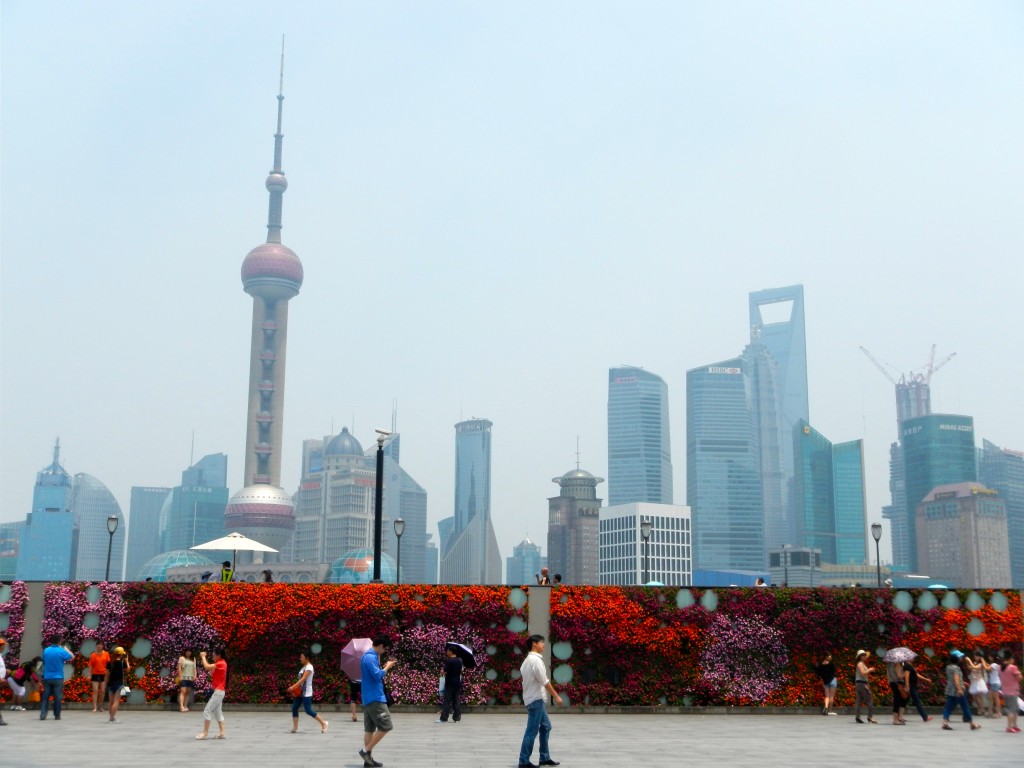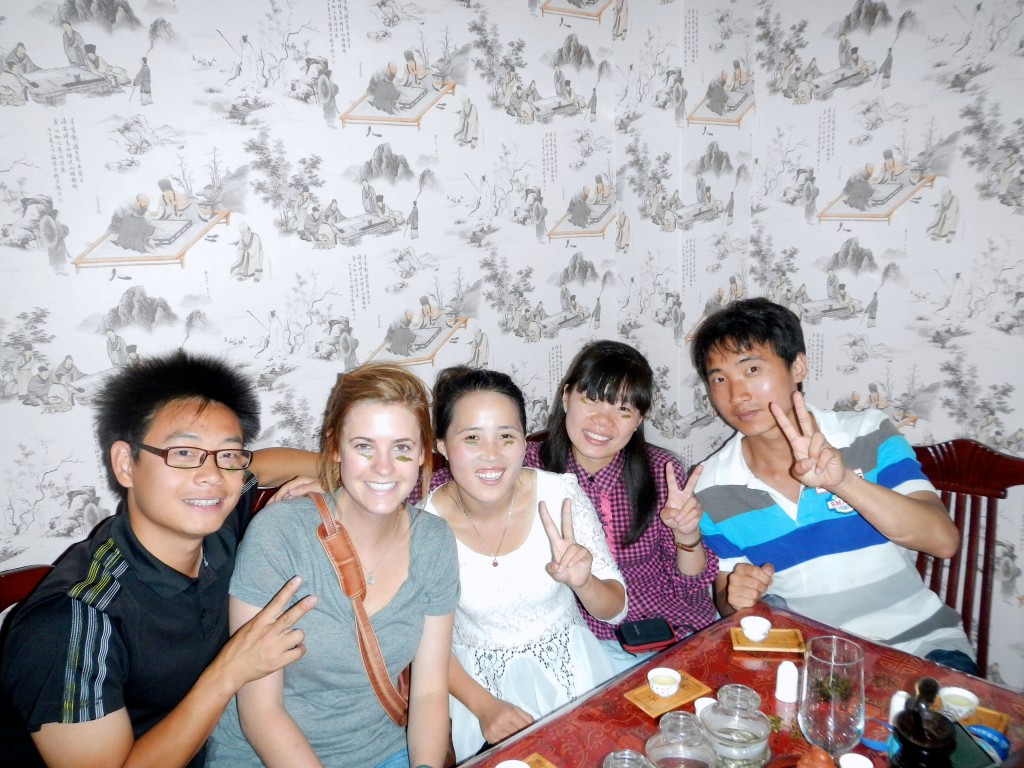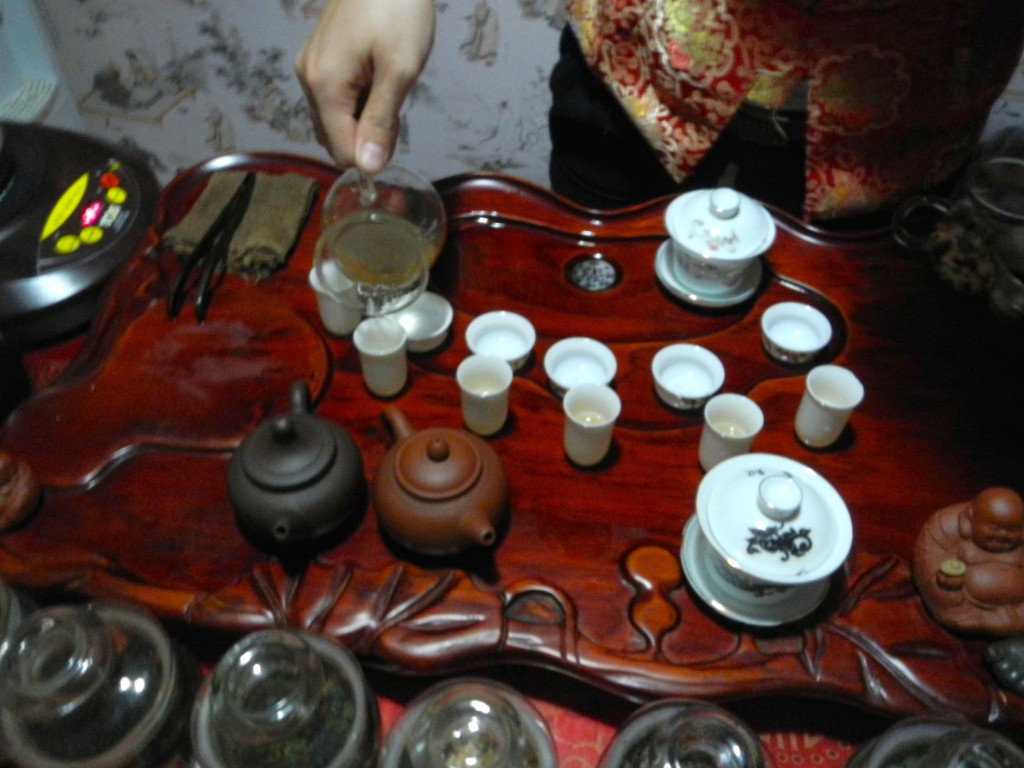My first day in Shanghai on an open-ended solo trip, I take a walk through People’s Square and pass by a group of Chinese students posing for a photo. I approach the photographer and offer to take a picture of them together. They seem extremely excited to meet me and ask where I’m from and what I’m doing in China (not an uncommon reaction for most travelers). I reciprocate and discover they are students visiting their friend (the photographer) for the weekend. I ask him if he has any recommendations for local hangouts in Shanghai. Why yes, he says, I was just about to take my friends to a tea ceremony if you’d like to join. Of course I would!
We walk a couple of blocks to a two-story mall, down a side hallway and into an unmarked door. Inside were three adjoining tea rooms, and one of the students translated to me that we would be viewing a private ceremony. The woman, dressed in traditional Chinese robes, would be conducting the ceremony in Mandarin, while the students translated. She handed me what looked like a price list, but the students seemed so excited to ask me questions, that I wasn’t able to get a good look at the sheet before it is whisked away. The ceremony lasts about an hour and we try five different thimble sized teas. At the end of the ceremony, we are encouraged to buy the tea for $150 a bag, which seems pretty steep, so I turn it down. All the students buy a bag of tea, divide the bill, and it comes out to $200 a person. I ask why it is so much and they explain the ceremony is $75 plus the bags of tea. It is custom in China to always split the bill evenly, no matter what, one of the students says with a stern face. I say that because I’m on a budget, I cannot afford to split it that way. Already starting to feel uneasy about the situation, I put down $75 and leave.
It was my second day on the trip and I’d already fallen victim to a very common travel scam. The students had a deal with the tea shop, if they brought in a tourist and pretended to pay, they got a certain cut of the profit. When the tea list is shown, they distract you with constant questions and nonstop chatter. I approached them. I cringed thinking back on this afternoon. That was the worst part about it. I completely walked into the situation. When traveling alone, always research known travel scams. After this incident, I googled Shanghai scams, and found that countless travelers had fallen for this ploy and the students matched the descriptions of many other stories.
Here are some other travel scams to watch out for:
– If someone approaches you to tell you the major sites in the city are closed due to a holiday or protest. They will then offer to take you around to “local” spots and charge a very expensive fee.
– A student wants to go to a cafe and practice English, the bill is outrageously expensive and the student gets a commission.
– An art student wants to show you art work in their gallery and upon leaving the gallery you find out there is an enormous fee.
– Any time a cab offers to take you to a good hotel, it is usually a friends business.
– When a bus stops at an office before border crossings and offers to take care of visa’s beforehand because it won’t be possible at the border (usually upon getting to the border you discover its much cheaper than through the agency).
It’s good to always be aware of possible travel scams and your surroundings, but also don’t let them impact your travels. Many wonderful experiences can arise from trusting locals and opening yourself up to new experience. Proceed with a cautious openness.
~ Tess Murphy, a San Francisco native, traveled for 18 months in 2012-14 around Asia and Australia. She now manages her blogging site about her wanderings in San Francisco. You can also follow her on Twitter @tesstravels.


